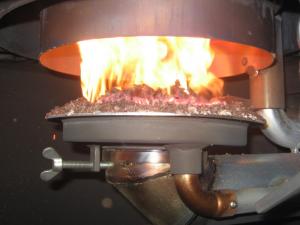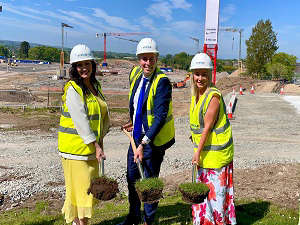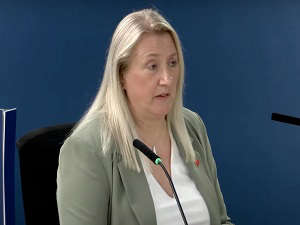
By Rebecca Black
The cost of a renewable energy scheme in Northern Ireland which once hit the headlines has now "significantly reduced", the Auditor General has found.
However, Kieran Donnelly has warned that he continues to have "significant concerns" about the operation of the non-domestic Renewable Heat Incentive (RHI) scheme.
The Auditor General for Northern Ireland's report on the Department for the Economy Resource Accounts 2017-18, published on Wednesday, sheds new light on the effect of new tariffs introduced to control costs.
The annual cost of the RHI scheme dropped from £45m in 2016/17 to £24m in 2017/18.
Mr Donnelly said a change in tariffs appears to be the main reason for the drop in costs.
But Mr Donnelly found that while the Department for the Economy has made progress, he is concerned at its "slow rate" of inspecting sites.
He also says he continues to have "significant concerns about the operation of this scheme and some of the weaknesses in controls that continue to exist".
The RHI scheme hit the headlines in 2016 amid concerns over its costs.
A series of fatal flaws in the design of the RHI exposed Stormont to a huge overspend, as it ended up paying out more to applicants than it actually cost them to buy the fuel.
This created an impetus to "burn to earn", and led to the scheme being dubbed "cash for ash".
An ensuing political row saw Sinn Fein apportion blame to the DUP, whose leader Arlene Foster was minister at the former Department of Enterprise, Trade and Investment when the scheme was introduced to Northern Ireland.
Former deputy First Minister Martin McGuinness resigned from his position in January 2017, effectively collapsing the Northern Ireland Assembly, in protest at the DUP's "handling" of the scheme.
The RHI Inquiry is currently examining the operation of the scheme.
Ms Foster told the inquiry in April, she does not think she bears personal responsibility for the collapse of the RHI scheme.
The Department for the Economy inherited the RHI scheme in 2016 when the number of Stormont departments was reduced,
The department made significant changes in the scheme from April 1, 2017 to the tariff paid to those who had applied for the scheme before November 18, 2015.
These changes were aimed at addressing the issue of excessive returns for some users and to reduce the "possible incentive for wasting heat".
However, the Auditor General's report finds that while there has been some improvement in cost control in 2017/18, there was not sufficient evidence found to suggest that costs are now under control.
Mr Donnelly concludes: "Whilst recognising that progress has been made on the non-domestic RHI scheme, I continue to have significant concerns about the operation of this scheme and some of the weaknesses in controls that continue to exist.
"I understand the department intends to consult on further changes to the scheme and I will closely examine the actions taken by the department once this process has been completed."


 Rescue operation to free 40 cows after lorry overturns on motorway
Rescue operation to free 40 cows after lorry overturns on motorway
 New date set for trial of former DUP leader Jeffrey Donaldson and wife
New date set for trial of former DUP leader Jeffrey Donaldson and wife
 Shared education campus ‘symbolic’ in Northern Ireland’s reconciliation journey
Shared education campus ‘symbolic’ in Northern Ireland’s reconciliation journey
 Man jailed for seven years after crash which killed two teenagers
Man jailed for seven years after crash which killed two teenagers
 Couple died after Covid ‘taken into house by carers’, daughter tells inquiry
Couple died after Covid ‘taken into house by carers’, daughter tells inquiry